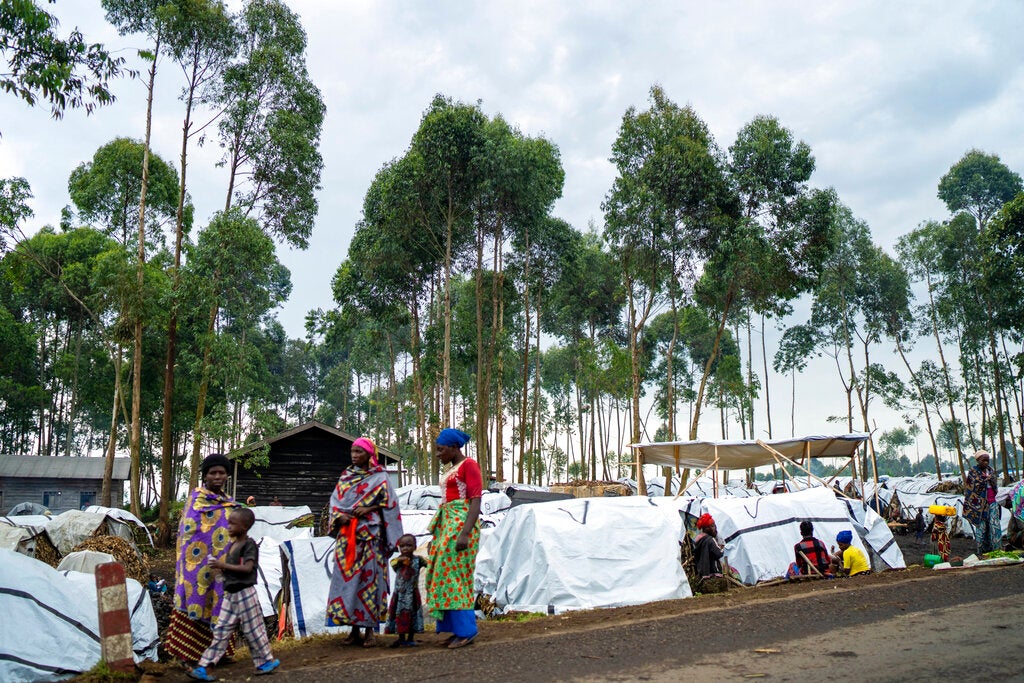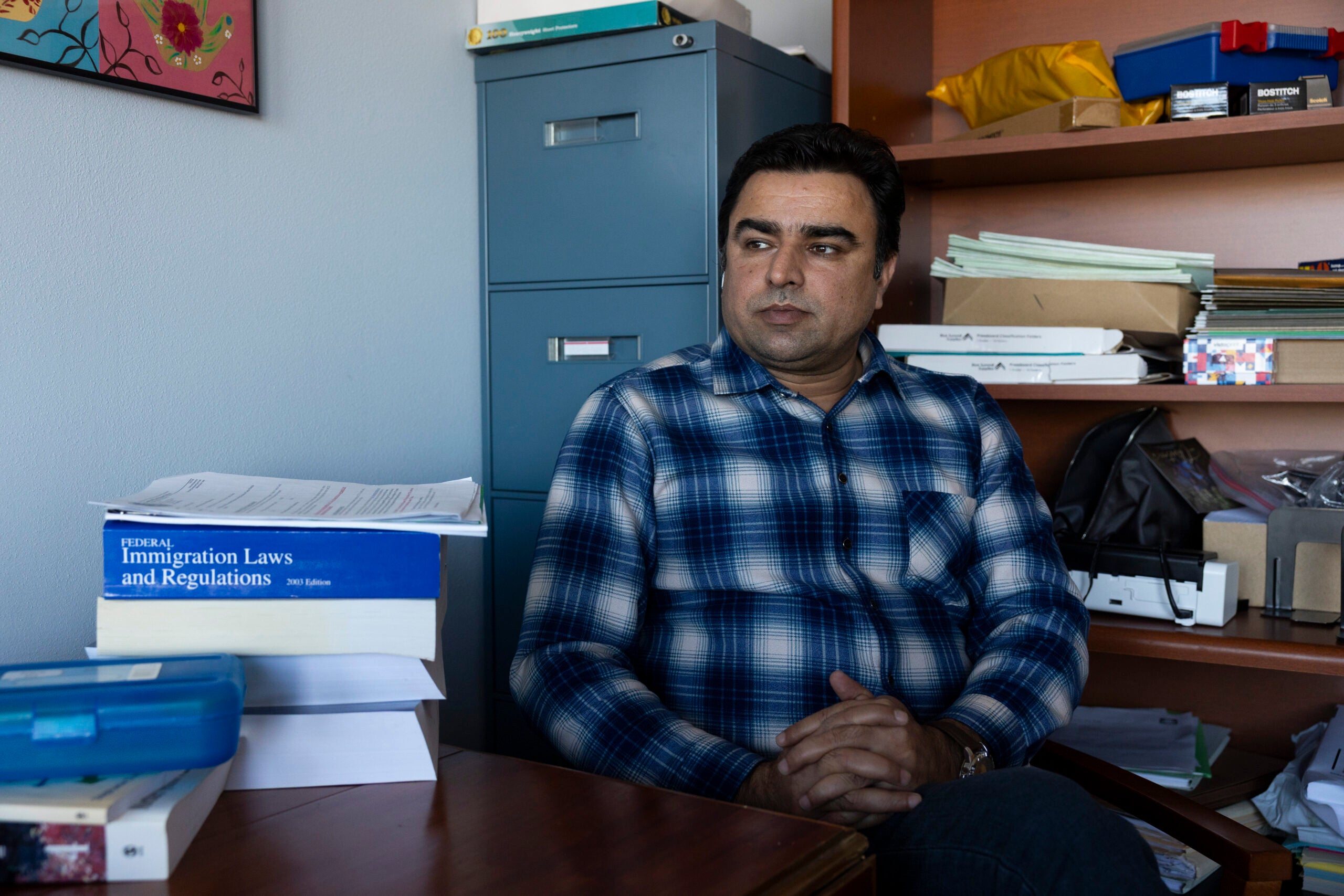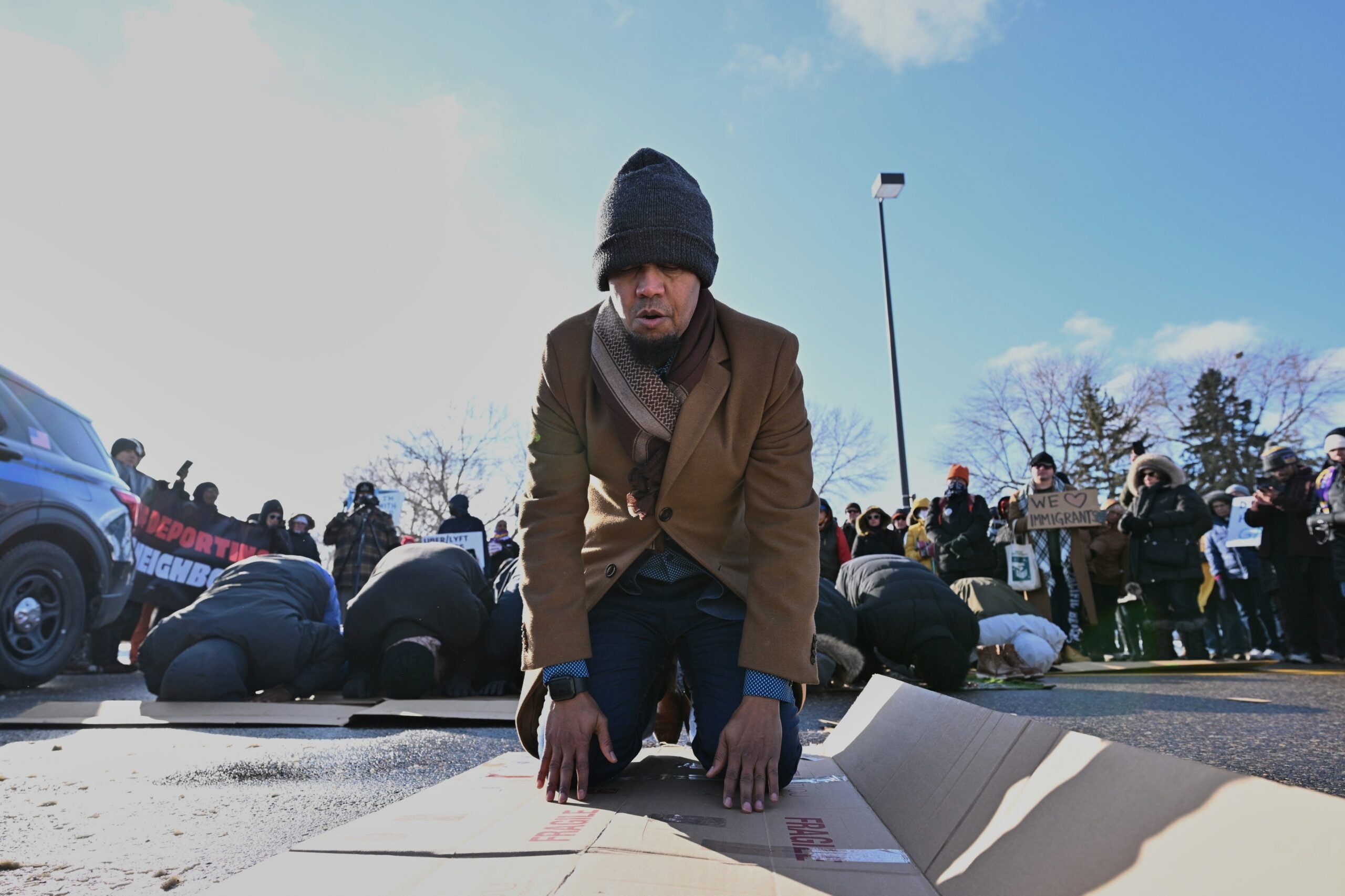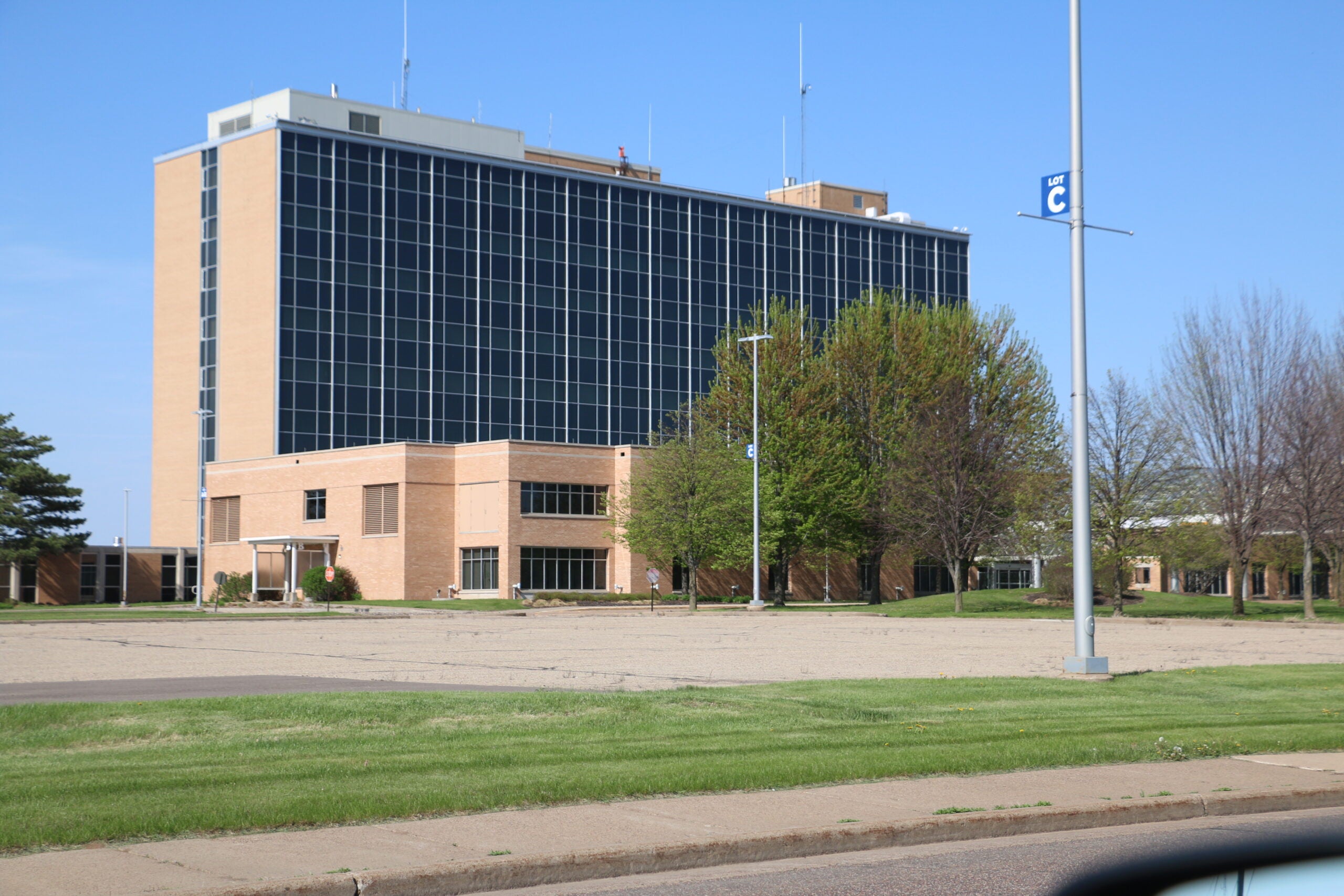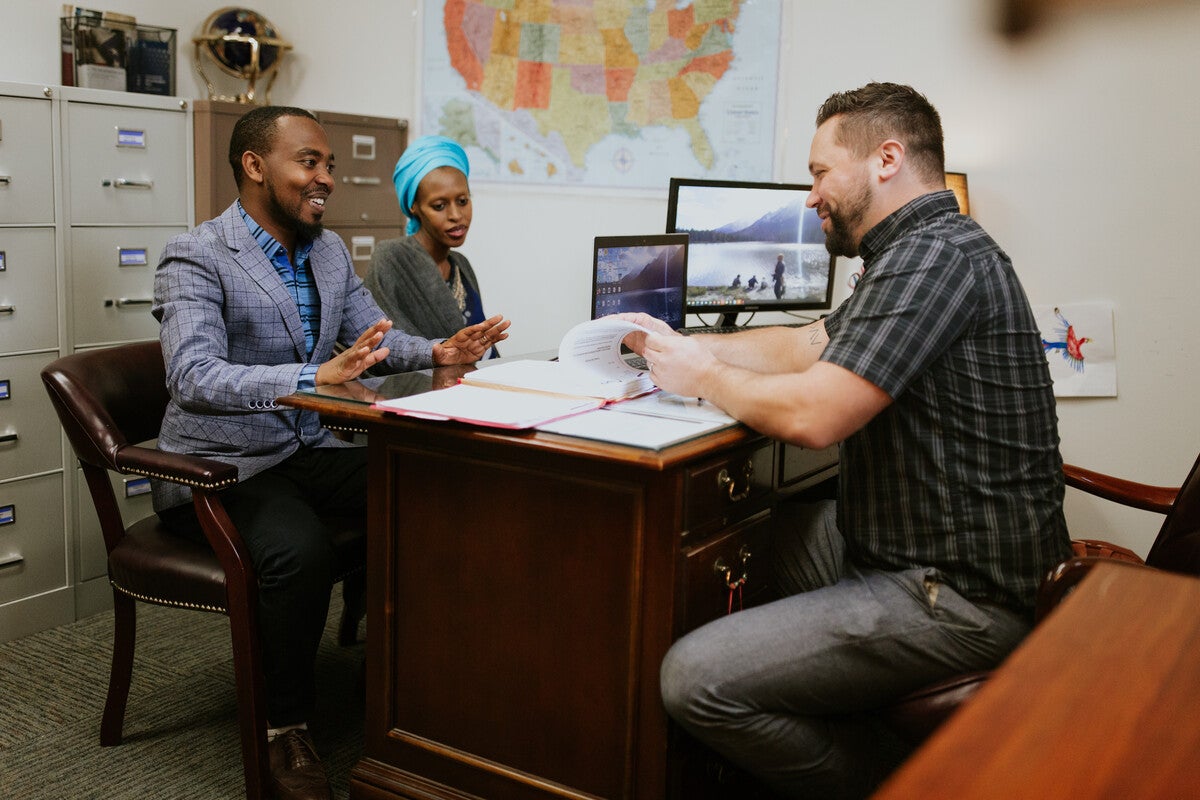A measure that would require local governments in Wisconsin to assess refugee placements is awaiting action from Democratic Gov. Tony Evers after passing the state’s Republican-controlled Legislature.
The legislation stemmed from opposition to plans by the Christian humanitarian organization World Relief to resettle 75 refugees in the Eau Claire area this year. Opponents said local elected officials were inadequately consulted before the plans gained steam.
But in a recent interview with WPR’s “The Morning Show,” the organization’s vice president of advocacy and policy disputed those criticisms.
News with a little more humanity
WPR’s “Wisconsin Today” newsletter keeps you connected to the state you love without feeling overwhelmed. No paywall. No agenda. No corporate filter.
Matthew Soerens, a Wisconsin native, said World Relief had met with numerous stakeholders, including local church groups sharing the organization’s “desire to be faithful to biblical commands to welcome strangers, to practice hospitality and to love their neighbors.”
“In light of the greatest mass forced displacement crisis globally that we’ve seen in history, we were looking for new places where we could potentially resettle refugees,” Soerens said.
READ MORE: GOP bill would require local hearings, resolutions on proposed refugee resettlement plans
Earlier this year, the first family of refugees relocated to Eau Claire, he said.
Legislation that would require local government involvement in refugee resettlement efforts passed the state Assembly 62-35 and the state Senate 22-10. Evers has until April 12 to take action on the legislation.
On “The Morning Show,” Soerens said World Relief has spent more than a decade resettling refugees in the Fox River Valley. Contrary to claims that refugees are a burden on local services, he said these immigrants prove over time to be productive taxpayers. Soerens also expressed concern that the recently passed legislation would unnecessarily complicate the resettlement process.
The following interview has been edited for clarity and brevity.
Kate Archer Kent: Bring us up to speed on the resettlement plans for these 75 individuals in the Eau Claire area. What are the details of the resettlement plans?
Matthew Soerens: Almost a year ago now, we began a process of looking in Wisconsin for another community where we might resettle a relatively small number of refugees. After a long process of consulting with local governmental leaders, school boards, law enforcement, potential employers, apartment owners, landlords and local churches, who are really central to our mission as a Christian organization, we proposed Eau Claire as a community where we might begin resettlement.
The U.S. State Department and the U.S. Department of Health and Human Services’ Office of Refugee Resettlement has the authority to determine where refugees are resettled, because refugees are legally defined under federal law as people who have fled their country because of a well-founded fear of persecution. The federal government approved World Relief’s request to start resettlement in Eau Claire, so we announced that back in September.
KAK: The refugees being resettled in the Eau Claire area, which countries will they come from?
MS: Those are decisions made by the federal government. They do the vetting overseas and verify that someone meets the U.S. legal definition of a refugee. We get somewhere between a few days and a few weeks of notice that a particular family will be arriving. Only at that point do we necessarily know the nationalities of the refugees.
They will probably be primarily from the Democratic Republic of the Congo and Burma (Myanmar) in Southeast Asia. They fled those countries, in many cases, years or even decades ago. They have often been in a neighboring country in a refugee camp or some other setting.
KAK: There have been some reports, including from Fox News, suggesting the majority of refugees are coming from Somalia. Is that true?
MA: That rumor probably comes from (Eau Claire’s) proximity to Minnesota, which is a historic center for Somali resettlement. To be really clear, we’d be happy to receive Somalis if that’s who we’re sent. But if we do see Somalis, it will probably be family reunification cases.
KAK: The state Legislature passed a bill that would require local government involvement in refugee resettlement plans. How has World Relief consulted with local officials about resettling refugees?
MS: We’ve been talking to governmental leaders for nearly a year. We’ve had a number of public meetings in the Eau Claire area that state lawmakers, representatives of federal lawmakers and city leaders have been a part of. That’s exactly how the process should work.
The Refugee Act that Congress signed back in 1980 doesn’t actually require local or state governments to sign off on or approve refugee resettlement plans. But it does make clear that there should be consultation with local and state governments. And that has happened in Eau Claire and continues to happen.
Refugee resettlement works really well when there’s community buy-in — when the community is eager to be a part of welcoming these newcomers and helping them to integrate into the community.
KAK: State Rep. Karen Hurd, R-Falls Creek, was a lead sponsor of the legislation that would require local government involvement in resettlement plans. Hurd says refugees in the Chippewa Valley would likely become dependent on local public services. Why are you confident the refugees will gain employment here?
MS: For the first few years, refugees get assistance mostly through federally funded programs that help them get on their feet. But within a number of years, they go from being net recipients of taxpayer contributions to being net contributors to the tax base.
Twenty years after arrival, according to a study by economists at Notre Dame, the average refugee adult contributes $21,000 more in taxes than the combined cost of governmental expenditures on their behalf over those 20 years. So, it’s actually an investment from a fiscal perspective, bringing new people into a community who are going to be workers and consumers and who are going to add to the economy overall.
KAK: How do you respond to concerns from lawmakers that the legislation would subject refugees to discriminatory treatment or block their legal settlement?
MS: To be fair to Rep. Hurd, the bill is relatively neutral. The bill is about creating and requiring local governments to be aware of and to hold meetings about refugee resettlement. Those meetings could affirm refugee resettlement or they could denounce it.
Our perspective is that the bill puts a burden on those local governments, especially because it would require meetings within a 100-mile radius of any community where there’s even an initial preliminary conversation about the possibility of refugee resettlement.
Communities that are unlikely to ever see a single refugee (would be) encouraged to pass a resolution for or against. And often that will bring out the perspectives of people who are maybe misinformed. … I don’t want any of the families that we’ve served or resettled to drive through a community where it’s the formal position of the county government that they’re not welcome. That’s where I think the bill goes too far in terms of pushing for resolutions in places where there’s really no reason for people to have an opinion on resettlement because it’s very unlikely to ever happen in their community.
Editor’s Note: An earlier version of this story incorrectly described the birthplace of Matthew Soerens. He is a Wisconsin native.
Wisconsin Public Radio, © Copyright 2026, Board of Regents of the University of Wisconsin System and Wisconsin Educational Communications Board.

